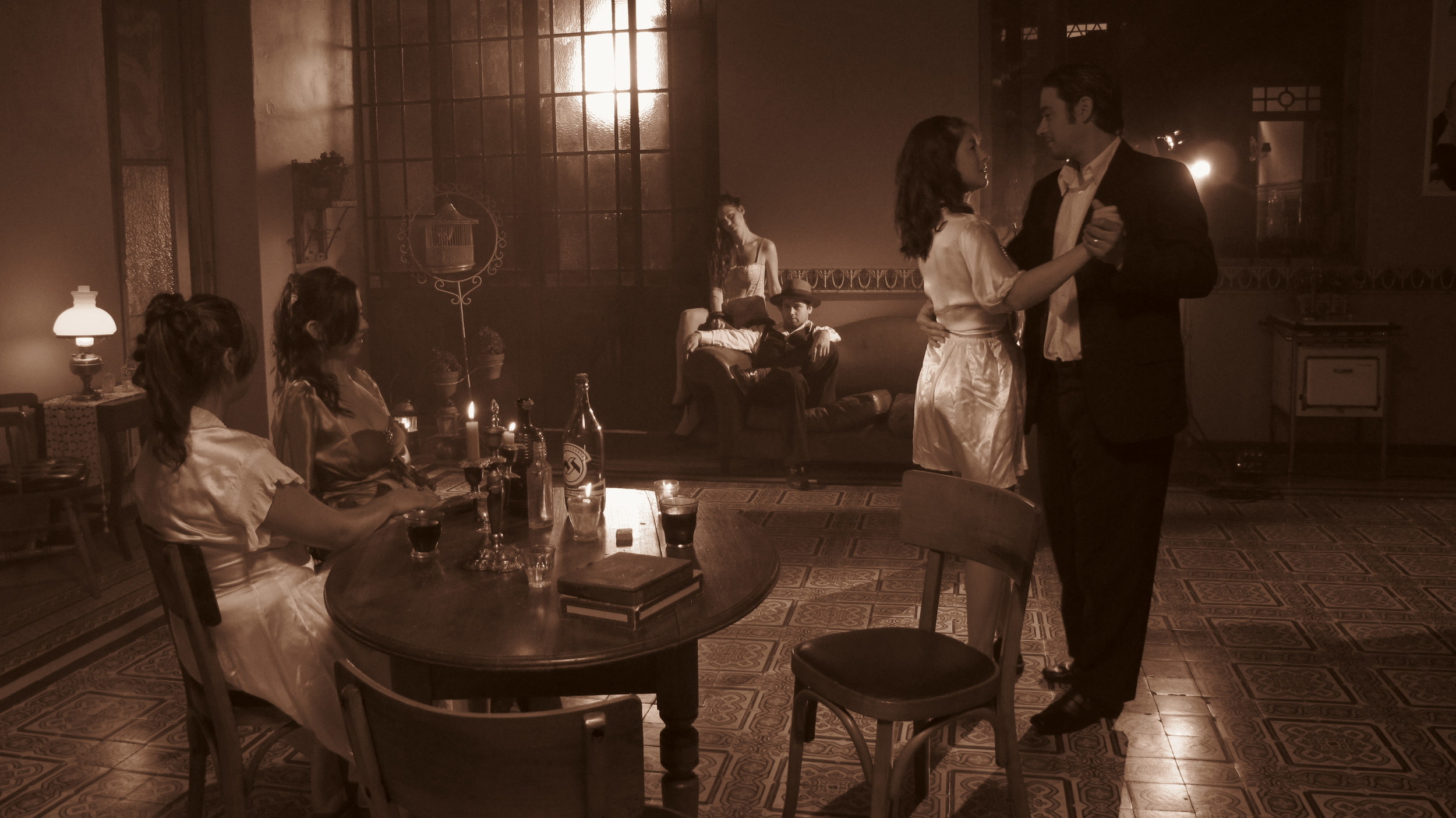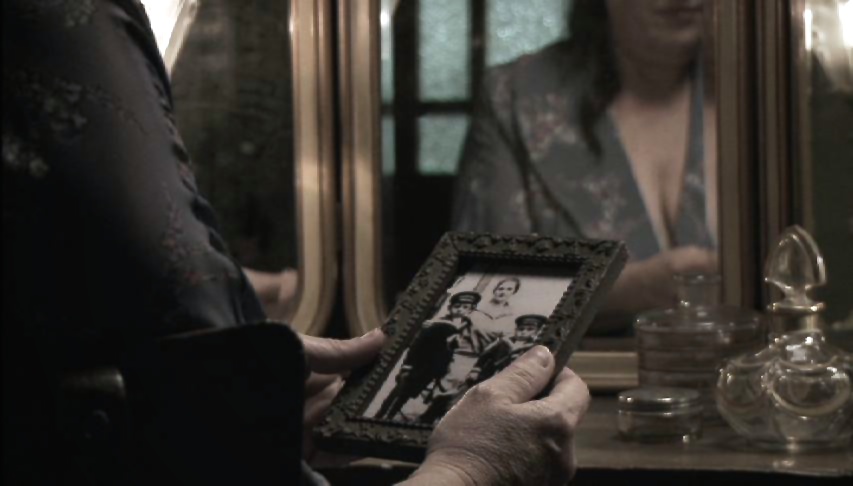RAQUEL: A MARKED WOMAN
Defying her sexual exploiters then. Her story resonates now.
Raquel's story is from another time, but resonates today. A mother, she was torn from her children and tricked into prostitution. In the early 20th century, thousands of Eastern European Jewish women were lured to Argentina and forced into prostitution. Others gave up. Not Raquel.
Raquel: a marked woman is a window on to a shameful and largely unknown episode in the history of the Americas. More than 3,000 Jewish women were lured from Europe to the New World from the late 19th century through the 1930s, only to be devoured in Argentinean prostitution rings run by Jewish criminals.
The film details the quest of one of those women - Raquel Liberman - who was torn from her children and tricked into prostitution. Her journey - from wife and mother to exploited woman to defiantly free woman - would be exceptional under any circumstances, but is even more so given the times and place where she lived.
Sexual slavery is still a scourge in our society. This historical story is relevant today, showing how the actions of one person can make a difference.
““Gabriela Bohm’s film illuminates a sordid chapter in Jewish-Argentinian history, throws light on the possibilities of courage under repressive conditions, and prompts closer attention to the widespread enslavement of women by international criminals that has become epidemic in our time.””
"I deeply believe that learning from our personal and communal legacy is the only way to grow and learn. In my eyes, holding on to secrets can traumatize and sicken communities and individuals. My way is to ask questions. To rethink a sad period in our history - specifically one of enslaved and traded Jewish girls and women by a Jewish criminal alliance - is necessary to generate change.
While making Raquel: a marked woman, I journeyed back in time and learned more about Raquel’s almost-forgotten story. Raquel’s story inspired me. Her life gave me insight into my own conflicts — helping me to find and give her a voice, when, before, she had none. It also opened a doorway to give me the courage to speak up about personal and historic traumas. Raquel was an ordinary person, one among many, who stood up and forced change."
- Gabriela Böhm
Festivals & Screenings
Krakow 25th Jewish Culture Festival, Poland
JFilm: The Pittsburgh Jewish Film Forum
San Luis Obispo International Film Festival, CA
Muestra de Cine y Cultura Judía de Lisboa, Portugal
San Diego Jewish Film Festival, CA
Festival de Cine Judio de Punta del Este, Uruguay
Tucson Jewish Film Festival, AZ
Jerusalem Jewish Film Festival, Israel
World Forum on Human Rights, Morocco
Warsaw Jewish Film Festival, Poland
Bucharest Jewish Film Festival, Romania
Krakow JCC, Poland
29th Encuentro Nacional de Mujeres
Salta Province, ArgentinaUniversity of Lujan, Buenos Aires, Argentina
Palm Springs International ShortFest & Market, CA
Los Angeles Jewish Film Festival, CA
Toronto Jewish Film Festival, Canada
Palm Beach International Film Festival, FL
Transatlántico Film Series, Skirball Cultural Center,
Los Angeles, CA
- Historical Background -
Between the 1890s and 1940s, more than 250,000 Jews immigrated to Argentina, the second largest Jewish immigration to the western hemisphere. This time frame was also the world’s “golden age” of prostitution.
Argentina had a open prostitution policy that benefitted the sex trade via legal brothels/prostitution, laws that gave husbands the right to “own” their wives, and a Catholic state that believed prostitution kept society’s “plumbing” clean and the family intact.
The country was vast and unpopulated, eager for immigrants. Prostitution provided a huge income source for the government, which helped to build Argentina’s infrastructure. Raquel Lieberman was one of thousands of women trapped in an international sexual trafficking ring run by the Jewish criminal syndicate Zwi Migdal, which, at one time, controlled 50 percent of Argentina’s prostitutes.
Many young Jewish Polish women were lured into the sex trade, by “recruiters” coming to “shtetls” (Polish villages), offering the potential of either work or a husband awaiting them in a far-away land. False marriages were also a way to ensure a quick and easy transaction. Other Polish women, like Raquel Liberman, were forced into a life of prostitution, because they had no other option and were pressured by relatives who were involved in the trade.
Credits
GABRIELA BÖHM, Producer/Director
MARTIN GANEM, Producer
GUILLERMO ZAPPINO, Director of Photography
JONATHAN BROCK, Editor
RICHARD MARTINEZ, Composer
ESMERALDA SANTIAGO, Narrator
FABIAN MUNNE, Sound Recording
Film Notes
Based on the book: The Jewish White Slave Trade and the Untold Story of Raquel Liberman by Nora Glickman.
Documentary Short (33:25 minutes)
Color
Spanish & English with English subtitles
Shot on Location: Capital Federal, Buenos Aires & Rosario, Argentina
Special Appearances & Interviews
Max Berliner, Yiddish actor; former resident
Placido Rosario Donato, Police historian
Elsa Drucaroff, Author: Jewish Prostitutes, Hell Promise
Ricardo Feierstein, Author: History of Jews in Argentina
Lucia Galvez, Historian
Rafael Ielpi, Author: Prostitution and Pimping
Maria L. Múgica, Historian, Author: Sex Under Control
Myrtha Schalom, Author: La Polaca: Inmigrantes, rufianes y proxenetas a comienzos del siglo XX
Yvette Trochon, Author: Eros Routes: White Slavery in South America (1880-1932)
Ana E. Weinstein, Director, Jewish Communities of Argentina, AMIA












